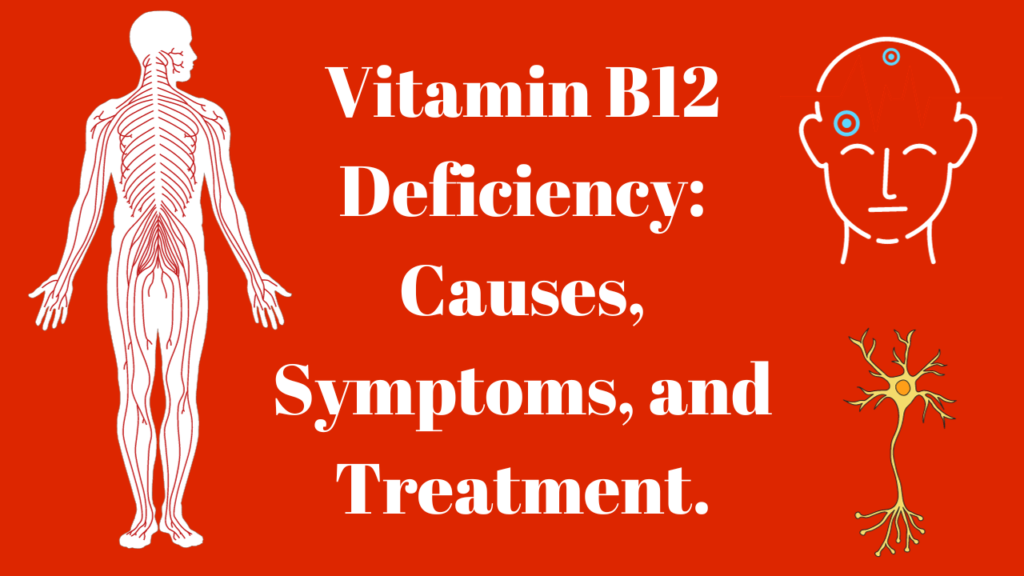Vitamin D Deficiency Most People Ignore.
Vitamin D Deficiency: The Silent Epidemic You Should Never Ignore.

1. What Is Vitamin D?
2. Why Is Vitamin D So Important?
3. The Prevalence of Vitamin D Deficiency.
4. Causes of Vitamin D Deficiency.
5. Recognizing the Symptoms of Vitamin D Deficiency.
6. Complications of Vitamin D Deficiency.
7. Prevention and Treatment.
Vitamin D Deficiency Introduction.
In the hustle and bustle of our modern lives, many of us often overlook the importance of proper nutrition. Among the vital nutrients, vitamin D stands out as a key player in maintaining our overall health and well-being. Unfortunately, vitamin D deficiency is more common than you might think, and the consequences of ignoring it can be dire. In this 10-page blog, we will delve into the various aspects of vitamin D deficiency, why it’s a critical issue, its causes, symptoms, and how to prevent and treat it. Let’s start by understanding what vitamin D is and why it’s so crucial for our health.
What Is Vitamin D?
Vitamin D, often referred to as the “sunshine vitamin,” is a fat-soluble vitamin that plays a crucial role in the body. Unlike other vitamins, it can be synthesized by the skin when exposed to sunlight, specifically ultraviolet B (UVB) rays. Vitamin D exists in two main forms: vitamin D2 (ergocalciferol) and vitamin D3 (cholecalciferol). Both forms are essential, but D3 is the one that your body primarily produces when your skin is exposed to sunlight.
Why Is Vitamin D So Important?
Vitamin D is not just any ordinary vitamin; it’s more like a hormone that influences multiple systems and processes in the body. Here are some reasons why vitamin D is incredibly important:
Bone Health: Vitamin D plays a vital role in calcium absorption, essential for maintaining strong and healthy bones. Without sufficient vitamin D, your body cannot efficiently utilize the calcium from your diet.
Immune System Support: It contributes to a well-functioning immune system, helping your body fight infections and diseases.
Mental Health: Emerging research suggests that vitamin D might be linked to mood regulation and could help reduce the risk of depression.
Cardiovascular Health: There is evidence to suggest that vitamin D deficiency may be associated with an increased risk of cardiovascular diseases.
Cancer Prevention: Some studies have indicated that adequate vitamin D levels may lower the risk of certain cancers, though the evidence is still evolving.
The Prevalence of Vitamin D Deficiency.
Despite its importance, vitamin D deficiency is incredibly common worldwide. Several factors contribute to this prevalence:
Lifestyle: Modern lifestyles often keep people indoors, reducing exposure to sunlight.
Geography: People living in regions with limited sunlight, particularly during the winter months, are at higher risk.
Age: As people age, their skin becomes less efficient at producing vitamin D.
Skin Tone: Individuals with darker skin require more sun exposure to produce the same amount of vitamin D as those with lighter skin.
Diet: A lack of vitamin D-rich foods and poor dietary choices can lead to deficiencies.
Causes of Vitamin D Deficiency.
Understanding the causes of vitamin D deficiency is crucial for prevention. Here are some common factors:
Inadequate Sun Exposure: Not spending enough time outdoors or wearing clothing that covers most of the body can limit sun exposure.
Sunscreen Use: While protecting your skin from harmful UV rays is important, excessive use of sunscreen can hinder vitamin D synthesis.
Dark Skin: Melanin, the pigment responsible for skin color, reduces the skin’s ability to produce vitamin D.
Season and Geography: People in regions with limited sunlight, especially during the winter, are at greater risk.
Age: As you grow older, your skin becomes less efficient at producing vitamin D.
Recognizing the Symptoms of Vitamin D Deficiency.
Vitamin D deficiency often goes unnoticed because its symptoms are subtle and can mimic various other conditions. Some

common symptoms include:
Fatigue: Persistent tiredness and a lack of energy can be early signs of deficiency.
Bone and Muscle Pain: Weakness, bone pain, and muscle aches can indicate a deficiency, often misdiagnosed as fibromyalgia or chronic fatigue syndrome.
Mood Changes: Some individuals may experience mood swings, depression, or anxiety.
Frequent Illness: A weakened immune system can lead to frequent infections and illnesses.
Slow Healing: Wounds and injuries may take longer to heal.
Complications of Vitamin D Deficiency.
Ignoring vitamin D deficiency can lead to severe complications. These may include:
Osteoporosis: Weak bones and a higher risk of fractures are common complications.
Cardiovascular Issues: Deficiency is linked to high blood pressure and increased risk of heart disease.
Autoimmune Diseases: Some autoimmune conditions may worsen due to low vitamin D levels.
Infections: A weakened immune system can make you more susceptible to infections.
Cognitive Decline: Emerging evidence suggests a potential link between vitamin D deficiency and cognitive decline.
Prevention and Treatment.
The good news is that vitamin D deficiency is preventable and treatable. Here’s what you can do:
Sun Exposure: Spend time outdoors, preferably in the sun, to allow your skin to produce vitamin D. Aim for around 15-30 minutes of sun exposure several times a week.
Dietary Sources: Include vitamin D-rich foods in your diet, such as fatty fish (salmon, mackerel, tuna), fortified dairy products, egg yolks, and mushrooms.
Vitamin D Deficiency Most People Ignore.
Supplements: In cases of severe deficiency, supplements may be necessary. Consult a healthcare provider to determine the 
Right Dosage.
Regular Check-Ups: Routine blood tests can help detect and monitor vitamin D levels.
Lifestyle Changes: Address contributing factors such as inadequate sun exposure, poor dietary habits, and excessive sunscreen use.
Conclusion
Vitamin D deficiency is a silent epidemic affecting millions of people worldwide. Its subtle symptoms often lead to misdiagnoses or overlooked health concerns. The importance of this vitamin cannot be overstated, as it plays a critical role in bone health, the immune system, and overall well-being. Recognizing the causes, symptoms, and potential complications of deficiency is essential.
By taking proactive steps to prevent and treat vitamin D deficiency, you can significantly improve your health and quality of life. Ensure you get adequate sun exposure, maintain a balanced diet, and consult with a healthcare provider if you suspect a deficiency. In this way, you can protect yourself from the consequences of this common yet often ignored health issue.
Additional Resources
For further information and resources on vitamin D deficiency, consider exploring the following:
National Institutes of Health (NIH): The NIH provides comprehensive information on vitamin D, its sources, and recommended dietary allowances.
Vitamin D Council: This non-profit organization offers detailed insights into vitamin D and its impact on health.
Consult a Healthcare Professional: If you suspect vitamin D deficiency or require personalized guidance, it’s essential to consult a healthcare provider for a proper evaluation and treatment plan.
Remember, your health is a precious asset, and addressing vitamin D deficiency is a vital step toward maintaining it. Don’t ignore the signs and symptoms; be proactive in nurturing your well-being and preventing this silent epidemic.


